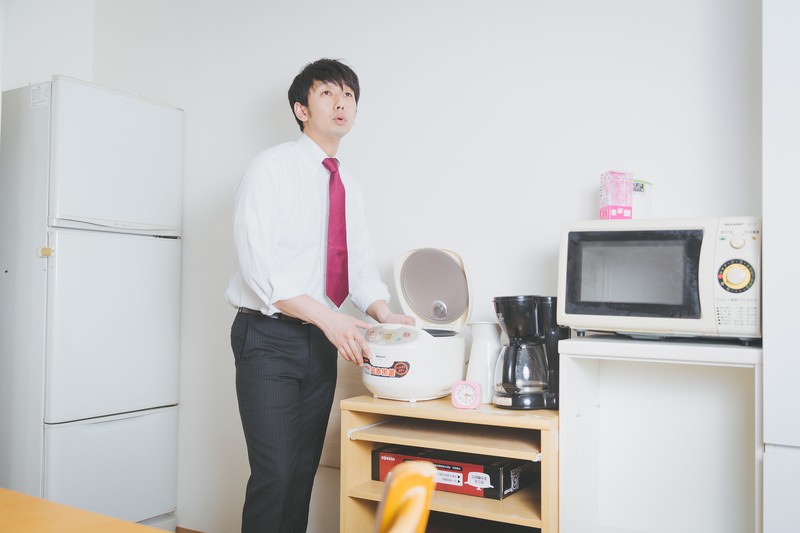
Renting an apartment in Japan without a guarantor can be confusing, especially for foreigners. To make it easier, we collected the most common questions and clear answers. From guarantor companies to UR housing and share houses, this Q&A will help you understand your options and prepare for a smoother rental process.
Table of Contents
- Q1. Is a guarantor required to rent an apartment in Japan?
- Q2. What are the requirements for a guarantor?
- Q3. What if I don’t have a guarantor?
- Q4. What is a guarantor company and how does it work?
- Q5. Are all guarantor companies the same?
- Q6. What do guarantor companies check in screening?
- Q7. What documents do I need for screening?
- Q8. Why might my application be rejected?
- Q9. How can I raise my approval chances?
- Q10. Are there housing options with no guarantor at all?
- Q11. Can my company or school help if I don't have a guarantor?
- Q12. What happens after approval?
- Q13. How can I reduce initial costs?
- Q14. Where should I search?
- Q15. Is UR the best choice for everyone?
- Conclusion
Q1. Is a guarantor required to rent an apartment in Japan?
In most cases, yes. Landlords want assurance that rent will be paid even if the tenant cannot. Traditionally, this role is filled by a personal guarantor (連帯保証人 rentai hoshōnin)—often a close relative with stable income who lives in Japan.
The guarantor promises to cover unpaid rent or damages. Because of this heavy responsibility, many Japanese tenants also struggle to find one. For foreigners, it can be even harder since family members usually live abroad.
This is why many landlords now require either a guarantor company (保証会社) or other alternatives, which we’ll cover in later questions.
Q2. What are the requirements for a guarantor?
To qualify as a guarantor, a person usually needs to:
- Live in Japan – Most landlords require the guarantor to have a registered address in Japan. This is because, if rent goes unpaid, the landlord needs someone whose assets can be legally pursued through Japanese courts.
- Have stable income – A full-time job or steady pension is often expected. The guarantor must prove they can cover rent if needed.
- Provide official documents – This may include a certificate of seal registration (印鑑証明書 inkan sho-mei-sho), proof of income, and ID.
👉 For foreigners, this is often difficult because family members live overseas and friends in Japan may not meet the income or residency requirements.
Because of this, many tenants face difficulties securing a guarantor. In the next section, we’ll explain the alternatives that have become common, including guarantor companies.
Q3. What if I don’t have a guarantor?
Don’t worry—many foreigners in Japan face this problem. Most landlords now accept guarantor companies instead of a personal guarantor.
A guarantor company (保証会社) promises the landlord that your rent will be paid even if you cannot pay on time. In return, you pay the company an initial fee (usually 50–100% of one month’s rent) and a small annual renewal fee.
This system has become the standard in Japan. In fact, by 2020, about 80% of rental contracts included a guarantor company (MLIT report).
👉 We’ll explain how guarantor companies work in detail in the next question.
Q4. What is a guarantor company and how does it work?
A guarantor company acts as a substitute for a personal guarantor. When you sign a lease, the landlord may require you to use the company they work with.
Here’s how it works:
- You apply through the landlord or agent. The guarantor company checks your income, job stability, and credit history.
- You pay a fee. The initial fee is usually 50–100% of one month’s rent, plus an annual renewal fee (often around 10,000 yen).
- The company guarantees rent. If you miss payments, the company pays the landlord on your behalf, then collects the money from you.
👉 Important to note: tenants usually cannot choose the guarantor company themselves. However, some landlords work with multiple companies. Since screening standards differ—some strict, some more flexible—letting the agent know your preference can sometimes improve your chances.
Q5. Are all guarantor companies the same?
No. Guarantor companies fall into three main categories, and each has different screening standards:
- Credit-based (信販系) – Run by credit card or finance companies. They check credit history, loans, and payment records. Screening is strict.
- LICC-affiliated (LICC系) – Members of the nationwide rental guarantee association. They share tenant data, so past unpaid rent makes approval harder.
- Independent (独立系) – Smaller, private companies with their own rules. They do not always share data, so screening can be more flexible.
👉 For tenants with weak credit or past issues, independent guarantor companies may be easier to pass. But their fees can be higher.
Q6. What do guarantor companies check in screening?
When you apply, the guarantor company reviews your background to see if you can pay rent without problems. They focus on:
- Income – You usually need to show payslips or tax documents. If you just started work, submit papers that prove your expected salary.
- Job stability – A long time at the same company makes approval easier.
- Employment type – Full-time jobs score highest. Dispatch or part-time can pass, but short contracts often fail.
- Extra guarantor – If your finances look weak, the landlord may still ask for a joint guarantor in addition to the guarantor company.
👉 In short, guarantor companies look for steady income and stable work. The stronger these points, the smoother the approval.
Q7. What documents do I need for screening?
When you apply for an apartment, prepare these documents:
- Passport and Residence Card – Proof of legal stay in Japan.
- Certificate of Residence (住民票) – You can get this at your city hall. See how at: A Stress-Free Guide to Moving in Japan: Your Essential Checklist
- Proof of income – Recent payslips, a tax certificate, or your employment contract. Self-employed people need tax return documents.
- ID such as My Number Card or Driver’s License – Used to confirm your identity.
- Emergency contact – Often a relative or friend in Japan.
👉 Requirements differ by property, so ask the agent in advance. If you don’t have a Japanese speaker to help, bring all possible documents to avoid delays.
Q8. Why might my application be rejected?
Even if you apply with a guarantor company, approval is not guaranteed. Common reasons for rejection include:
- Rent too high for income – If the rent is more than one-third of your monthly income, companies see it as risky. For example, to rent an apartment at 100,000 yen/month, you generally need a salary of at least 300,000 yen/month.
- Unpaid bills or credit issues – Late payments on credit cards, phone bills, or loans are shared in databases. If you have unpaid debts, clear them before applying.
- False information – If you provide fake details about your job, income, or status, your application will almost certainly fail. Companies often call your employer and request proof of income.
👉 To increase your chances, choose a property with rent within your budget and make sure your financial record is clean before you apply.
Q9. How can I raise my approval chances?
- Choose rent that is no more than 25–30% of your income.
- Show proof of funds, like bank statements, or offer several months of rent upfront.
- Prepare all documents carefully and submit them neatly.
- Be polite with the agent—landlords often ask for their impression of you.
- If possible, apply with the help of a Japanese speaker.
Q10. Are there housing options with no guarantor at all?
Yes, but they are rare. A few housing options in Japan do not require either a guarantor or a guarantor company:
- UR Apartments (UR賃貸住宅) – Managed by the Urban Renaissance Agency, these apartments do not require a guarantor, guarantor company, key money, renewal fees, or agency fees. Units are offered on a first-come, first-served basis, and popular properties go quickly.
- Share Houses – Many share houses skip deposits, key money, and guarantors. Contracts are flexible, from one month to two years, making them popular among working holiday residents and short-term students. They also provide opportunities to meet other foreigners and Japanese tenants.
- No guarantor / no guarantor company rentals – Extremely rare, but they exist. According to a 2016 MLIT report (PDF, p.2), only about 3% of rentals fall into this category. If you find one, consider it a lucky break.
👉 For most people, these are exceptions. In practice, guarantor companies remain the main path for renting.
Q11. Can my company or school help if I don’t have a guarantor?
Yes. Some employers and universities in Japan provide housing support for foreigners.
- Company housing (社宅 shataku or 寮 ryo-u) – Large companies sometimes offer dormitories or apartments for employees. In many cases, the company itself acts as the guarantor, so you don’t need to find one.
- University housing – Many universities offer dormitories or apartments for international students. These options usually don’t require a guarantor, and the paperwork is much simpler.
- Company or school as guarantor – Even if they don’t provide housing directly, some organizations will sign as your guarantor or cover the cost of a guarantor company.
👉 If you are moving to Japan for work or study, always ask your employer or school about housing support before starting your search. It can save you a lot of money and stress.
Q12. What happens after approval?
Once the guarantor company and landlord approve your application:
- You sign the rental contract (usually in Japanese).
- You pay the initial costs: deposit, key money (if any), first month’s rent, agency fee, and guarantor company fee.
- You register your new address at city hall within 14 days. See our Moving Checklist for details.
- You receive the keys and can move in on the agreed date.
👉 Bring a Japanese-speaking friend or use an English-speaking agent to make sure you understand the contract before signing.
Q13. How can I reduce initial costs?
Renting in Japan can be expensive at the start. Here are ways to cut costs:
- Look for “zero-zero” properties (ゼロゼロ物件) – No deposit, no key money.
- Free-rent campaigns – Some apartments waive rent for the first 1–2 months. Specialized agenciesies such as Village House lists housing with no deposit, no key money, no renewal fee, with rents starting from 20,000yen.
- UR housing – No key money, renewal fee, or guarantor required.
- Share houses – Often no deposit or agent fee. Flexible short-term contracts.
👉 For more details on these options, see our article How to Rent an Apartment in Japan: Key Money, Contracts, and Housing Options.
Q14. Where should I search?
- UR Apartments (English site): UR Rentals
- Foreigner-friendly platforms: GaijinPot Housing, Village House
- General portals: SUUMO, HOME’S, At Home
Use keywords like 保証人不要 (no guarantor) or 保証会社利用可 (guarantor company accepted) when searching.
⚠️ Note: Platforms like Craigslist or Facebook groups are not widely used in Japan for rentals. Based on my experience, they are considered less reliable and rarely used compared to the sites above.
Q15. Is UR the best choice for everyone?
UR apartments are great if you have stable income and want to save on upfront costs. They skip guarantor, key money, renewal fee, and brokerage fee. But they are first-come, first-served, and popular units go fast.
⚠️ Downsides:
- Many UR units are older and can feel a bit shabby.
- Locations are often less convenient, with many properties around a 15-minute walk from the nearest station—a big drawback in Tokyo.
- On the other hand, some UR complexes include community rooms for residents, and because the rent is lower than private market rates, they have become popular among foreign communities, especially Indian and Chinese families.
👉 If you don’t meet the income requirements or prefer a newer or more central location, a standard rental with a guarantor company is usually the more practical choice.
Conclusion
Renting an apartment in Japan without a guarantor is possible, but it takes preparation and the right approach.
Here’s what to remember:
- Most landlords still require either a guarantor or a guarantor company.
- Guarantor companies are now used in about 80% of rentals, and knowing how they work is essential.
- Alternatives exist—UR housing, share houses, and support from companies or schools can reduce the stress.
- Approval depends not only on income and documents, but also on how you present yourself.
For foreigners, the key is realistic expectations. Aim for rent within your budget (25–30% of income), prepare all documents neatly, and work with agents or platforms that are foreigner-friendly.
If you want to understand the broader housing system—fees like key money, deposits, and renewal costs—check our related guide: How to Rent an Apartment in Japan: Key Money, Contracts, and Housing Options.
With the right preparation, you can find a safe, affordable home in Japan—even without a guarantor.


